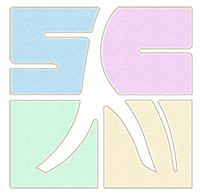
After a year of preparation, Modern Life writing Studies is nowavailable to readers. We are more than excited, pleased and grateful to the fact that many distinguished scholars of life writing studies or other academic fields both in and outside China have agreed to join our academic committee. This signals a favorable prospect for the journal to move into the international academic community. We hereby, in this issue, express our heartfelt gratitude to Professor Philippe Lejeune for his valuable contribution to be published in the Chinese version. As the author of Autobiographical Pact, a monographwhich is certainly a significant document in academic history, and an essay every life writing researcher must read, he elaborates on his experience of autobiographical research.
Now that the Fourth “National Awards for Biography in Chinese (2007-2012, China)”have been announced, Zhang Sheng and Tong Daoming, two of the prize-winners, have kindly sent their papers at our solicitation. Although Coming from the War is Zhang Sheng’s only biography, the author’s writing skills and understanding of life writing are enlightening and hence recommendable. Quan Zhan makes detailed comments on each prize-winning work of the Fourth “Award for Biography in Chinese (2007-2012, China)” based upon a large number of sources. Shi Yu’s reading experience of I Know Where Light Istestifies to the progress made by Chinese life writing from a variety of perspectives. The exuberant development of China’s modern life writing is an important trend which also gives birth to our journal, so we will continuously focus on this field.
Despite the fact that China has long boasted of voluminous life writing production, the drawbacks inlife writing identified by academia cannot be neglected. Through his rich writing experience and knowledge of historical documents, Han Shishan’s evocative article criticizes some common defects in life writing as illustrated in several versions of biography of Lin Huiyin. Yang Zhengrun’s recommendation of SimaQian’sbiographical approaches is also pertinent to the negative issues in current Chinese life writing. In his impressive essay, he quotes European and American scholars’ comments on SimaQian to call attention of Chinese Shijiresearchers .
Life writing theory is relatively weak within the field of life writing studies. Some articles in this issue attempt to change this situation. Quoting voluminous materials, Liang Qingbiao examines autobiography from the perspective of “micro-politics.”Tsun-Jen Cheng explores the milieu and significance of the emergence of disabled lives, a new sub-genre in Taiwan, while Wang Jun analyzes the presence of personality in oral history. Li Fang and PengJia, in the light of modern life writing concepts, perform their research on the ways in which life writing resources are utilized from the perspective of information management and knowledge organization. The pioneering spirit of all contributing scholars is highly commendable.
Some female authors have contributed their part to this issue, too. They share an acuteness and meticulousness in text interpretation. Xiaoning Lu identifies the narrative approach of “peripheral perspective” from two accounts of Lao She’s British sojourn. From the construction and use of Aw Boon Haw’s Villas in Hong Kong and Singapore, Sin Yee Theng examines the commercial strategy and cultural significance. Through her research on letters and other documents, Angela Jackson performs an in-depth psychological analysis of a British nurse from her account of four-year work experience in China in the aftermath of the Spanish civil War.
As far as commentaries and book reviews are concerned, they cover a wide range and manifest their unique features in methodology or perspective. Placing the first European biography of Chiang Kai-shek in the historical context and taking the biographer’s identity into account, Tang Yuqing gives an analysis of its various particularities. Shi Jianguo’s study focuses on the stylistic characteristics, literary approaches and religious concerns of Wang Dingjun’s memoir. Wei Hongyuan, through his outstanding historiographic expertise, explores the process of composing Wang Shouren’s Biography in the Ming History, reflecting his great efforts in collecting and synthesizing materials. Wang Yanhui employs his multi-disciplinary expertise in his analysis of how Michel Leirisembodies anthropological and autobiographical elements inL'Afriquefantôme. Shen Chen addresses three versions of Henry James biography andChin Hsuen Wei’s review of Wu Liende’s autobiography both highlight the tinge of comparative life writing, which is a new branch, and deserves the attention of the academic community.
Covering a vast variety of topics and transcending time and geographic boundaries, this issue enjoys an array of contributions fromrenowned experts, well-established middle-aged scholars, and young Ph.D. and M.A. students. Apart from mainland China, authors are from France, U.S., U.K., Singapore, Malaysia and Taiwan. This finely dovetails with our aspiration of openness in the global age.